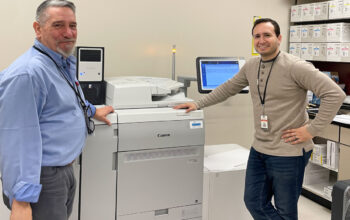
Marcus Hijkoop
Reporter & Website Manager
New Canaan High School is commonly regarded as one of the best open enrollment public high schools in the region and boasts an average of over 50% advanced Math, Science, Reading and Writing components for the 2010 Connecticut Academic Performance Test (see the online Superintendent’s Annual Report 2009-2010 for more details).
Yet, while public schools across the nation are being forced by President Obama’s Race to the Top program to evaluate teachers through student achievement, New Canaan High School students, teachers and administrators remain adamant that student test scores alone do not accurately assess teaching skills.
A recent school-wide survey projected that 98% of 115 NCHS students and faculty believe teachers with high scoring students are not necessarily better than those who teach lower scoring students. Of the survey participants, 74% most valued knowledge, passion, and the ability to clearly explain material, while 24% of participants felt accessibility and friendliness to be the most important characteristics a teacher should have. Only 2% most valued educators who teach students with high standardized test scores and overall grades.
“A teacher’s knowledge doesn’t necessarily say whether they can teach well,” junior Amanda Chin said. “Administrators should also see how kind and accessible a teacher is, and how much involvement there is after class.”
Freshman Jack O’Rourke agreed. “Getting to know students is vital, so that teachers know how to help their students and push them to learn without being too strict,” he said.
According to Assistant Superintendent Dr. Steven Swerdlick, The NCPS Human Resources Department acknowledges this point and therefore refrains from over-valuing student achievement in teacher assessment, preferring a more hands-on approach.
“One of the things that the Professional Evaluation and Growth System (PEGS) is working on, is how to evaluate teachers,” Dr. Swerdlick said. “We currently evaluate teachers by visiting classrooms as it’s very important to see a teacher’s teaching strategies. We do look at test scores but we don’t want to make them the most important factor in assessing teachers.”

While most students agreed that administrators should observe classes more often, some recognized that teacher and student behavior changes when a senior member of staff is evaluating in the classroom, and believe that students should have more input in evaluating their educators.
“There should be a checks and balances system where both students and administrators are involved in evaluating teachers,” junior Chris Green said.
Junior Emily D’Adamo agreed. “[Administrators] should choose a wide variety of students to assess a teacher – not just a certain type of student. It should be a mix of honors, average and below average students,” she said.
However, Dr. Swerdlick noted that most students aren’t trained to evaluate teachers, and therefore student opinions are not currently considered. “Before we formally incorporate student opinions, we would need to discuss the different methods of evaluation with them,” he said.
Survey participants also pointed to additional difficulties in assessing teachers, such as the wide range of student, teacher, and even parent commitment.
“Personal conflicts can get in the way,” Emily said. “If a student or teacher brings personal issues into a classroom environment, then it can throw everything off.”
According to History teacher Marianne Cohen, parent commitment also plays a vital role in a student’s education. “There are certain things that are out of a teacher’s control, such as student and parent commitment,” Ms. Cohen said. “I’ve seen parents who don’t care, and I’ve also seen ‘helicopter’ parents. In order for the level of education to rise, parental support should go beyond what it is now.”
Although New Canaan High School has shown great success in the past, Dr. Swerdlick also said that there is always room for improvement, highlighting future plans to introduce teacher portfolios and to encourage peer collaboration between teachers. “We continually give teachers professional development opportunities and expect teachers who have been here for a number of years to improve from where they started,” he said.
 Despite the numerous plans to be considered by the Human Resources Department in upcoming months, Dr. Swerdlick remained steadfast that NCHS would not be following the same rigorous criteria as the Race to the Top education program enforces on the majority of the country.
Despite the numerous plans to be considered by the Human Resources Department in upcoming months, Dr. Swerdlick remained steadfast that NCHS would not be following the same rigorous criteria as the Race to the Top education program enforces on the majority of the country.
“We’re not hiring or firing based on test scores at this time,” Dr. Swerdlick said. “Right now, these are the only topics that we are looking at and want to better understand.”



